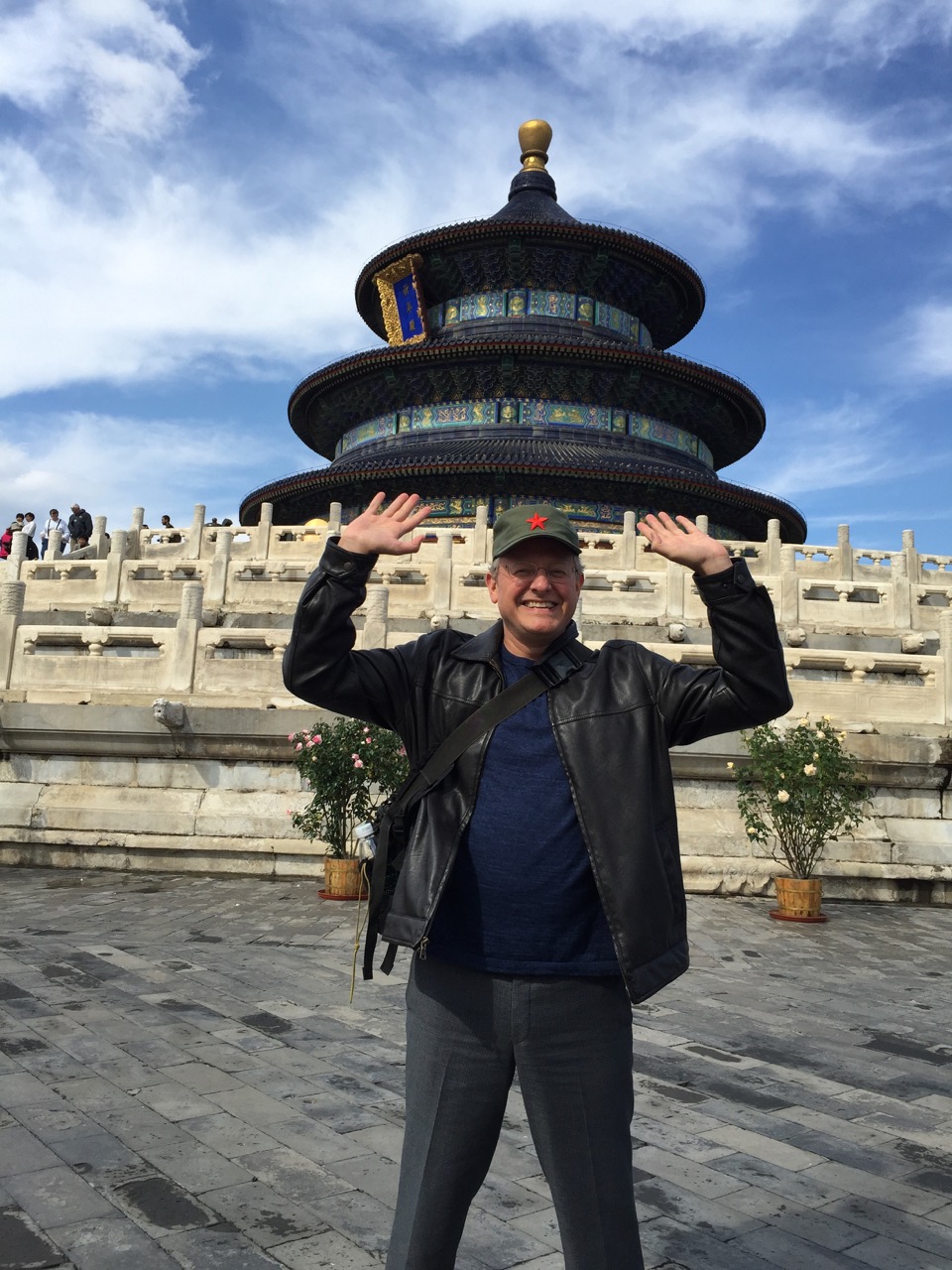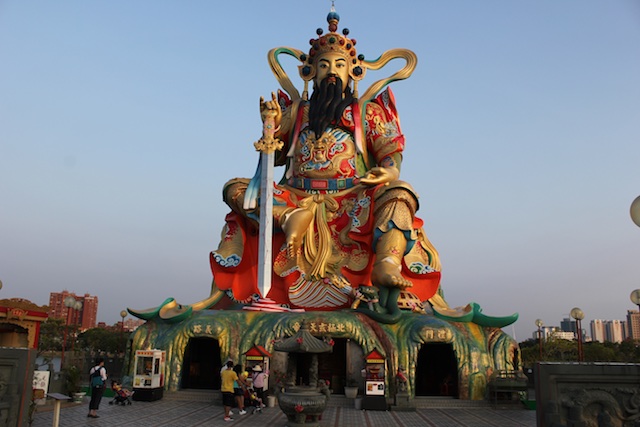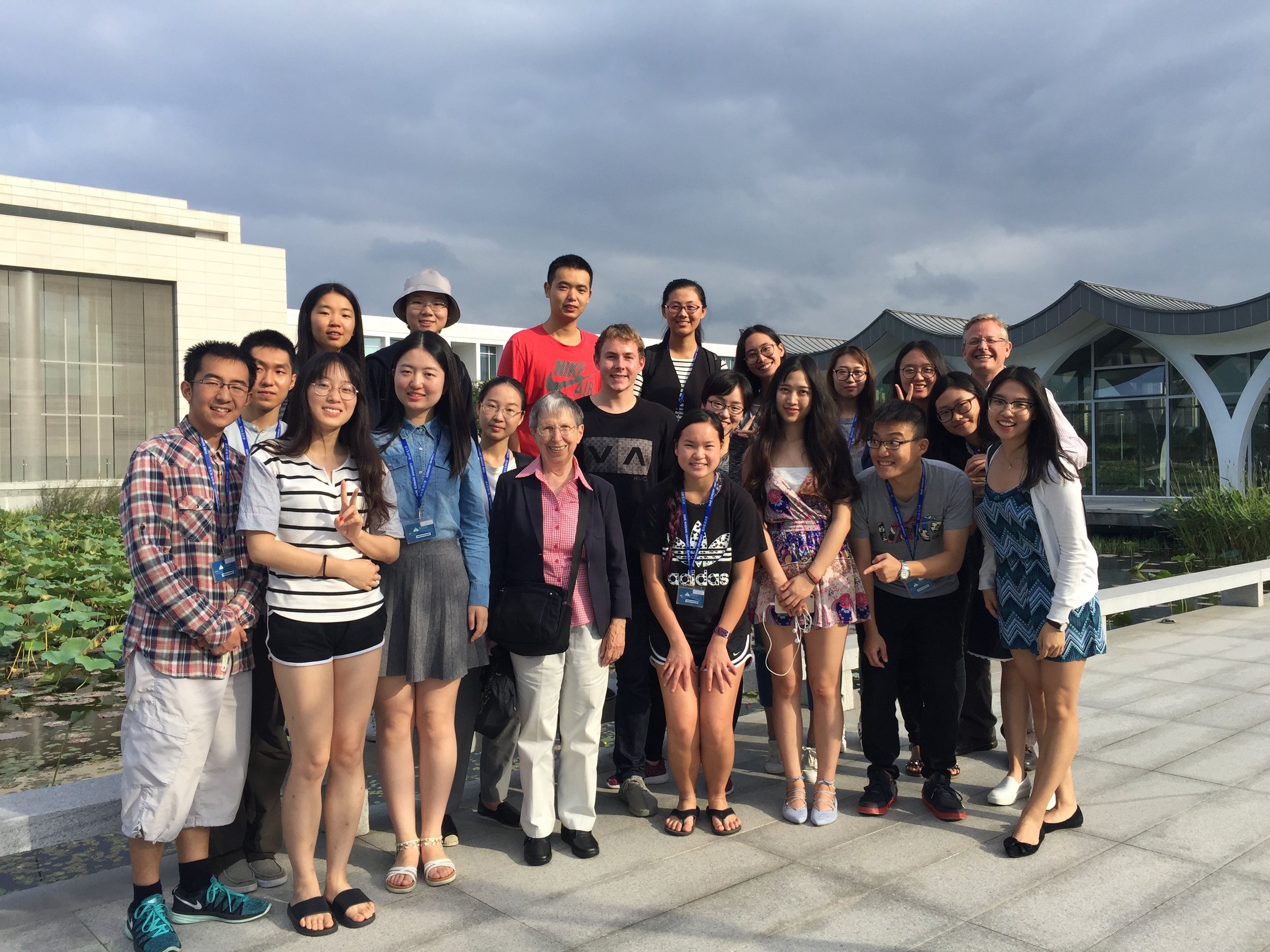The title of this entry is more than just my own poor attempt at a pun—it is meant to emphasize how the EARCOS conference grounds us in the practices, principles, and realities of governing over the complex entities of international schools, especially within the context of the world region that this conference seeks to represent.
Read More If I were asked to write down a list of the top ten reasons why I find cities so fascinating and such wonderful places to live, it would not be easy. Well, here I go anyway, and I'm sure at least some of these will be obvious to anybody who has lived in cities:
Read MoreThis is a message especially for my American and European colleagues in Asian Studies and in the field of Study Abroad: The ways by which we learn Asian languages need to be rethought, and we also need to find better ways to enable more students to learn more Asian languages to study abroad in Asia. Here’s why.
Read MoreI have a very special relationship with China’s capital city. I have lived there only twice for 6- month stints, once in 1996-7 and again in 2007. Yet I have a deep fondness for the city, and some of my oldest and dearest friends in China have lived or still live there. These days I manage to pay a visit to the city at least two or three times a year, for different purposes. Lately I’ve been going there to recruit university students for our DKU GLS program, which is what I was doing this past week. I visited the campus of Peking Foreign Languages University or Beiwai 北外 on Wednesday. On Thursday I gave a talk at Peking Normal University or Beishida 北师大. Today I headed out to Tianjin to talk to students at Nankai 南开 University (as I write this I’m on a high-speed train or gaotie back to Shanghai). In between these visits, I also managed to pay a visit to the Schwarzman Scholars campus at Tsinghua University, and also caught up with a few old friends.
Read MoreMy first study abroad experience at Dartmouth College was in Taipei, back in the summer of 1988. I remember the excitement of flying over there from Boston via Tokyo, and embarking on what would turn out to be a nine-month-long life-changing journey. It is therefore fitting that my last recruiting trip of this year was to Taiwan.
Read MoreA life-changing week in the other heart of Asian civilization
Read MoreA brief and intense sun-filled tour of the temples, shrines, river, canals, malls, jazz bars, and historic sites of Bangkok
Read MoreA tour of Hanoi with its lakes, temples, museums, and shops in labyrinthine streets of the Old Town reveals a Chinese- and French-inflected though distinctively Vietnamese heritage
Read MoreThere are a growing number of British universities building campuses in Asian countries, including China, Vietnam, and Malaysia. Americans, the leading proponents of liberal arts education in the world, are less active in this region, though now Yale, Duke, NYU, and a few other intrepid explorers are leading the way. For the rest of you out there, I have a simple message: The time to invest in liberal arts education in Asia is now!
Read MoreIn my previous post, I recapped a five-week tour of Asia that was the first part of my two-part recruiting mission for DKU and the launch of our new undergrad degree program in fall 2018. This time I’ve decided to break up my current Asia tour into separate posts by country, starting with Singapore.
Read MoreLast month I had the unusual opportunity to visit five different countries/regions in Asia, including Indonesia, Thailand, Malaysia, Hong Kong/Macau, and Korea. This was the first of a two-part tour that I am conducting of schools in Asia as part of our global recruitment efforts for Duke Kunshan University’s new undergraduate degree program, which we are launching in fall 2018.
Read MoreEveryone who studies Chinese as a foreign language—or any foreign language for that matter—intensively and long enough will be familiar with this phenomenon. Peter Hessler writes about it in his own books about his experiences in China. The idea is that when you learn another language and culture deeply enough, you take on an alternate identity when speaking that language and engaging with that culture.
Read MoreLast week, the Wall Street Journal published an essay by Daniel Bell, a noted scholar of Chinese philosophy who teaches at Tsinghua University in Beijing. The essay came with the intriguing title “Why Anyone can be Chinese”. Now I call this going down the rabbit hole of identity politics. To do so is like stepping onto a minefield, and Dr. Bell bravely if somewhat naively did so when publicly expressing his wish to be considered Chinese.
Read MoreMy previous journal entry was about my transformation from a science and math nerd to a China/Asian Studies nerd and how the liberal arts experience at Dartmouth enabled that transformation. Perhaps I overstated the case a bit. Looking back on those days, while I professed to have an interest in science, ironically it was more from a humanities perspective all along. Maybe that's why I felt an affinity with the scholars of ancient China with their multiple interests all grounded in a basic love for humanities and arts.
Read MoreI have been giving many talks lately on the value of liberal arts education to audiences in China and elsewhere in Asia. While most institutions of higher learning in this part of the world offer the general education approach, whereby students are channeled into specific areas of study with few if any choices outside their majors, liberal arts education is definitely making headway in China and other Asian countries. There are quite a few liberal arts style programs now in cities like Hong Kong, Tokyo, and Seoul, and increasingly in Beijing and Shanghai, and while small and spare compared with the larger universities, these programs are an emerging sign that the liberal arts model is recognized and valued here.
Read MoreLast night, publisher Graham Earnshaw and I had the pleasure to launch the republished memoir of 1920s Shanghai jazz musician, Whitey Smith. Whitey’s book I Didn’t Make a Million, first published in Manila in 1956, was just republished in its original form by Earnshaw Books. In the latest edition, I provide a brief introduction to the man and his times. During my talk, I played two songs recorded by Whitey Smith’s orchestra in 1928 that probably haven’t been heard in Shanghai since the 1930s.
Read MoreI know them as the Eagle Bar band. While some of the band members have come and gone, they have remained fairly stable. Marvin has always been the band leader and lead guitarist. Ama is the singer, though the others also take turns singing. Jerlon, another guitarist and a great singer himself, joined in the past two years since I moved to Kunshan and became a habitué of this bar. Carlos has always been on drums. Kenneth was the bassist, then left for a while, and recently returned. It's a fabulous band. I blogged about them in my previous blog on Kunshan bars and clubs.
Read MoreHere are several establishments I've visited in the past two years and some of my impressions of each. Obviously there are many more clubs and bars in Kunshan than I cover here, including bars catering to specific ethnicities and nationalities (e.g. Japanese) and perhaps another installment will follow eventually (hence the Part One in the title of this entry). My one big caveat is that I almost never spend the weekend in Kunshan (I weekend in Shanghai) so some of these observations might pertain more to weekday than weekend nights...
Read MoreI have been meaning for quite some time now to write a piece about my experiences at the 25th Reunion for our class of 1991, held on June 16-19 2016 at Dartmouth College. Several hundred '91s joined the reunion and it was quite an experience to see so many faces I hadn't seen in 25 years or more, and to rekindle memories and re-experience some of the youthful vigor of our Dartmouth days.
Read MoreLast month I attended the annual meeting of the Association of Asian Studies, held in Toronto. It was a very special experience to see and meet so many other Asian Studies scholars, many of whom I hadn't seen in years if not decades.
Read More












